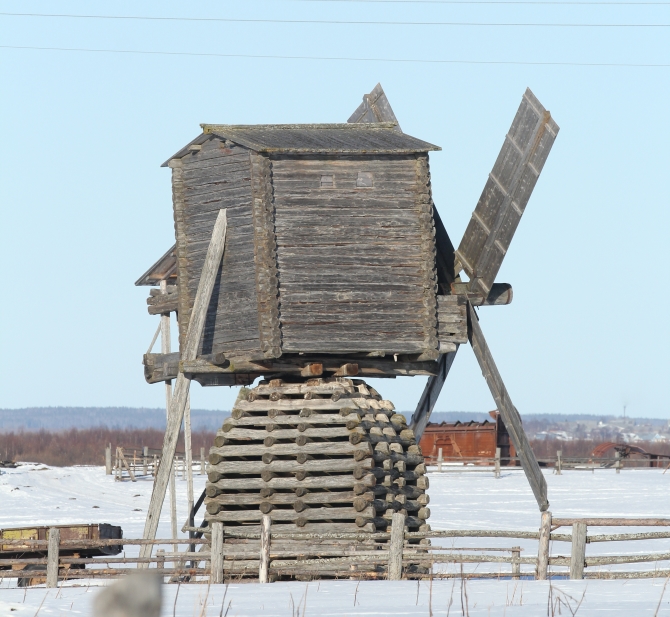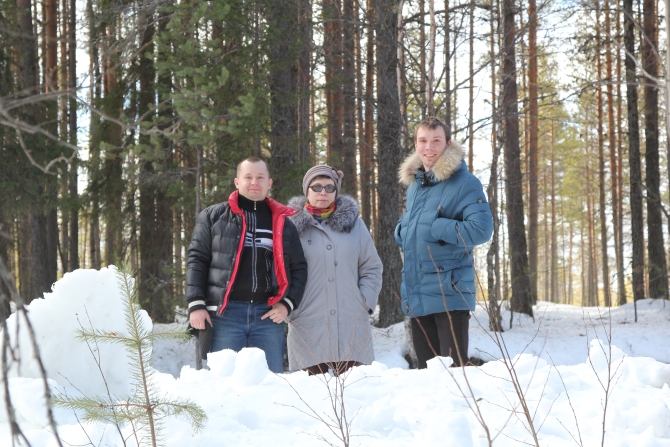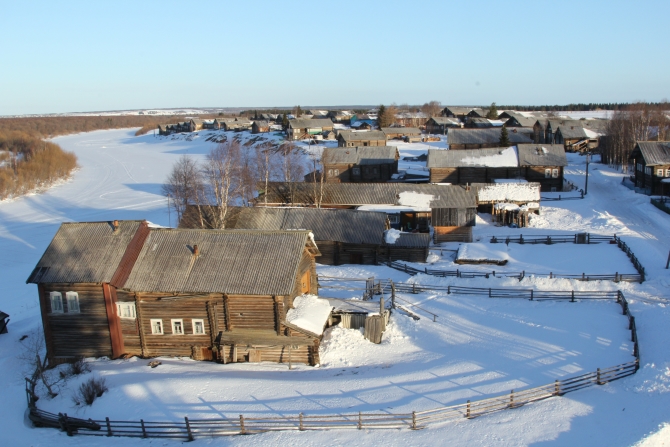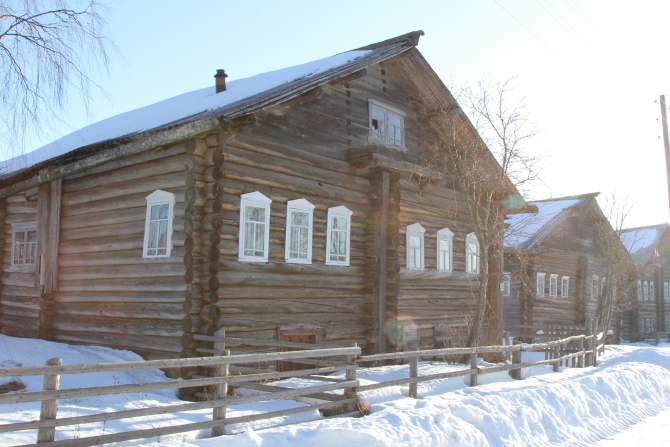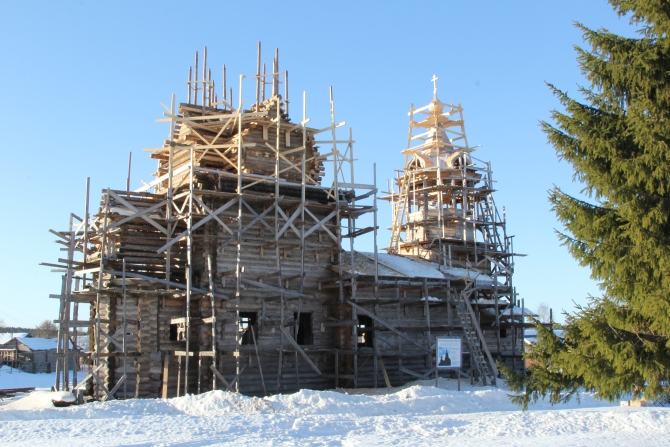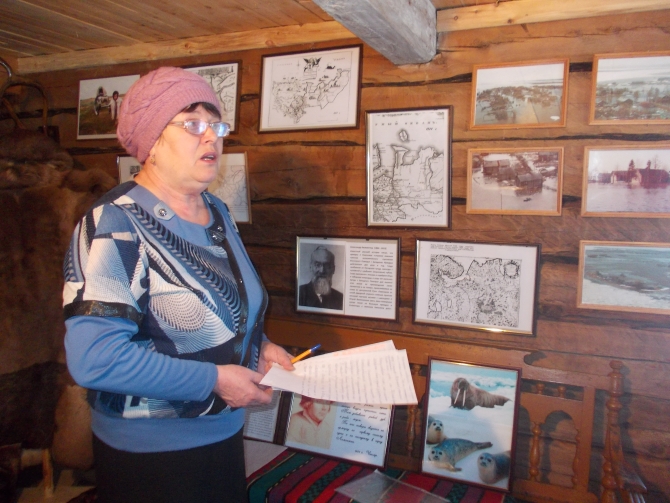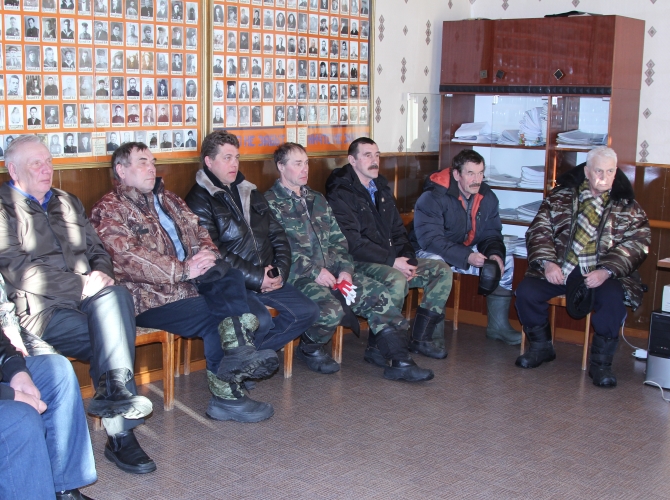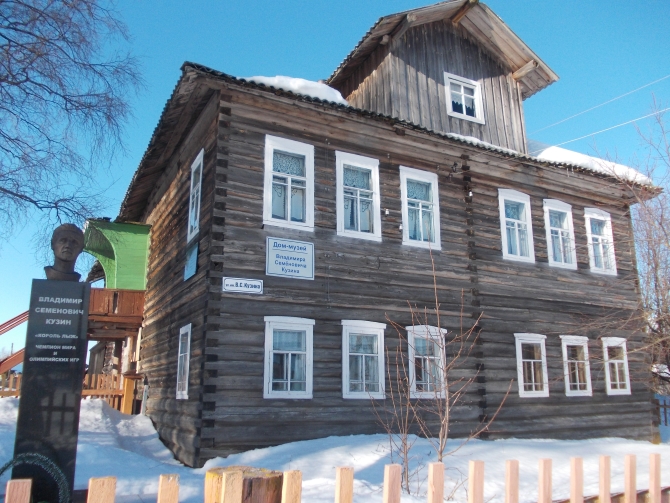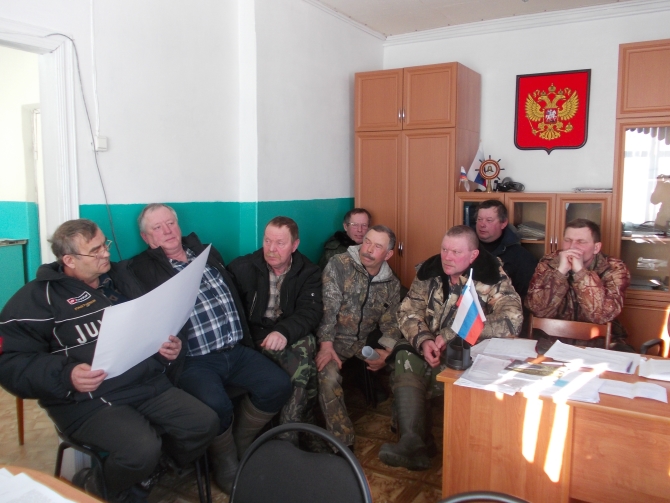Meetings in Mezen
Silver Taiga representatives have visited the Mezen district of the Arkhangelsk region under Model River Mezen project. The aim of the visit was to establish contacts with the most remote Mezen villages, to meet with the local people and to get acquainted with their history and everyday life.
Silver Taiga ecologists Nikolai Shilov and Nikolai Shuktomov, Local Communities Project Manager Valentina Semyashkina met with the fishermen in Dorogorskoe and Tselegora, the local population of Lampozhnya, Kimzha, Kozmogorodskoe and Pogorelets villages. There also was a meeting with the interested authorities in the district centre – Mezen department of the Federal state budgetary institution «Sevrybvod» and Mezen interdistrict department of the state control and protection of water bioresources and also the relevant departments of the district Administration.
The first impressions and conclusions of all the meetings and discussions are the following.
Lack of cooperation
Unfortunately, there is still no proper cooperation between residents from different districts, between the relevant services in different areas, etc. It should be mentioned, that Mezen fish resources are exhausted due to poor management. People have no reliable information about how the resource is used in the other district and what kind of measures are taken for the conservation of salmon. We should change the situation in order to improve the management of fish resources. Besides, people don’t have enough knowledge about the biology of salmon. That is why they do not understand, that this resource is vulnerable and can easily be disturbed. The information is needed and therefore we should write and speak about it more and more.
In spite of the fact, that the newspaper supplement about Model River Mezen project is being disseminated in all the villages of the district, people from the downriver villages are not enough familiar with Silver Taiga activity. We have established new contacts during the visit and this will promote cooperation with the local population under Model River Mezen project.
The current fishing grounds are not the best way of amateur fishing organization
Meeting the local people, we realized, that management of fish resources use on the current fishing grounds for amateur fishing leaves much to be desired and is far from being sustainable. According to the local people, there is no more than 10% of the local anglers acting under the licenses on the fishing ground «Dorogorskoe»; the other anglers are from Mezen, Kamenka, Moscow, etc. The villagers cannot afford it. Therefore, according to the local people, the amateur fishing under the licenses on the current fishing grounds is not the best way of the resource use and organization of fishing: firstly – it is not fair and secondly – there is no proper control on the given fishing grounds.
The new rules of amateur fishing were also discussed during the meetings. According to the local people, these rules are far from the people. That is why many of the local people say, that the legislation should be more liberal with regard to the fishing of other species as this would distract people from salmon. In particular, people told about the period of the 1950s-1960s – it was the time when the people from Dorogorskoe village fished flounder, went to the sea by karbass and now it is not possible. May be because of this only one or two people from the village fished salmon at that time and nowadays – most of the villagers. People also remember that in the 1990s it was allowed to use nets and they propose to allow it nowadays as well, because «there will be no results if everything is forbidden». People also were interested in planting of pike and grayling in Udora district.
Public control. Is it possible?
It should be mentioned, that most of the people, participated in the meetings, didn’t share the opinion that the main reason of fish resources decrease is overfishing. However, they said, that there are «real poachers among the local population, who make money at salmon», but «there are not many of them and they are mostly from down the river». By the way, lack of confidence between people from up and down the river was very well noticed during the conversations. May be because of this people are very vulnerable. Some statements of the local people were parochial at all. And that is due to the lack of information and poor contacts between the districts.
The issue concerning public control was discussed during the meetings as well. Unfortunately, the most of the local population is skeptical about the idea of public control.
– People don’t understand the public control in a proper way, – says Silver Taiga ecologist Nikolai Shilov. – They think that to catch the people of the same village in the act of fishing is untrue. It is possible to control the situation around the village by the villagers themselves… The organized local community is needed for this purpose. This community should consist of the people who are not just living in the same village but also have a common interest. Generally, as for the control and fish protection, it is necessary to strengthen them down the river in the Mezen district in particular and not to forget about the protection of the spawning grounds in headwaters.
The history of the Mezen villages is also a valuable resource
Besides the talks and discussions on the issues, related to the use of the fish resources and river condition, the trip was rich in other meetings, thanks to which we obtained the opportunity to learn more about the history of the villages, located in the Mezen district, and their today’s life. We also got a chance to get acquainted with active and interesting people concerned about the destiny of their small motherland.
Another trip to the ancient village Kimzha, situated fifty kilometers away from the city of Mezen, showed that the public self-government, which was organized here just over a decade ago and declared itself as Territorial Self-Government (TSG) “Kimzha”, had not merely “survived”, but also implemented new interesting initiatives. The village with the population of less than one hundred people has several operating museums – Politov House (a museum of peasant life), Grain Museum, and Workshops designed to revive traditional crafts (weaving and pottery), with the latter two located in the village school building. One more mill has been restored since our last visit to Kimzha in 2012. Although, while the first one has been restored and is functioning again, the second is planned to be used as a museum. Evdokiya Gavrilovna Repitskaya, the Head of the TSG, shows the elements, which are already prepared for the future museum exposition. It will be displayed inside the planned museum and will introduce the visitors to the history of the northern mills. The opening of the museum is scheduled for the days of the International Festival of Northern Mills, which will be held in a small Kimzha not for the first time already.
However, today all these initiatives on the development and promotion of those historical and spiritual values and objects, which are still preserved in this ancient village, are implemented not only by the TSG, but also by the Kimzha Cultural and Museum Centre established here. By the way, among other things, the local activists have managed to achieve the restoration of the ancient wooden temple in the name of the God’s Mother Odigitria icon. Its reconstruction is currently conducted by the craftsmen from Petrozavodsk at the expense of the federal budget. And in one of the century-old peasant houses of the village Nina Nikolaevna Selivanova, a hostess of the guest house, welcomes the travellers and tourists the same way as three years ago.
Of course, Kimzha is a beneficial place for the tourism development also due to its favourable location – close to the district centre and near the Mezen ferry crossing. So, it is quite easy to reach it both from Mezen and Arkhangelsk.
However, Kimzha is not the only village in the Mezen district, where the local residents draw upon their history and century-old values to preserve and further develop their small motherland. Another such example is the village Lampozhnya, one of the oldest settlements in the lower reaches of the Mezen. TSG is also in operation here. Thanks to the efforts of the local enthusiasts, the wonderful Museum of the Olympic Champion, “king of skis” Vladimir Kuzin born in Lampozhnya, has been created here in his ancestral house. Among other things, there is a guest house in Lampozhnya, and even a gym next to it…
Almost every village has got TSG and the results of its work are plain to see, the same as the support of these initiatives by the district and regional authorities.
The results of the trip and meetings with the population of the Mezen district will be presented and discussed in more detail at the next meeting of the Model River Mezen project Working group. In particular, it is planned to conduct an analysis of the activities on the amateur fishing organization on the Mezen fishing grounds, taking into account the opinion of the population and the results of the survey carried out in 2014 in all three Mezen districts. Another important conclusion – the information from the districts of the Arkhangelsk region should be more actively addressed and published on the pages of the thematic supplement to the Udora newspaper. The information exchange is clearly insufficient, which is, certainly, not contributing to the cooperation and determining the optimal means for our common river resources management.
Valentina Semyashkina
Photo by Sergey Davydov and the author

